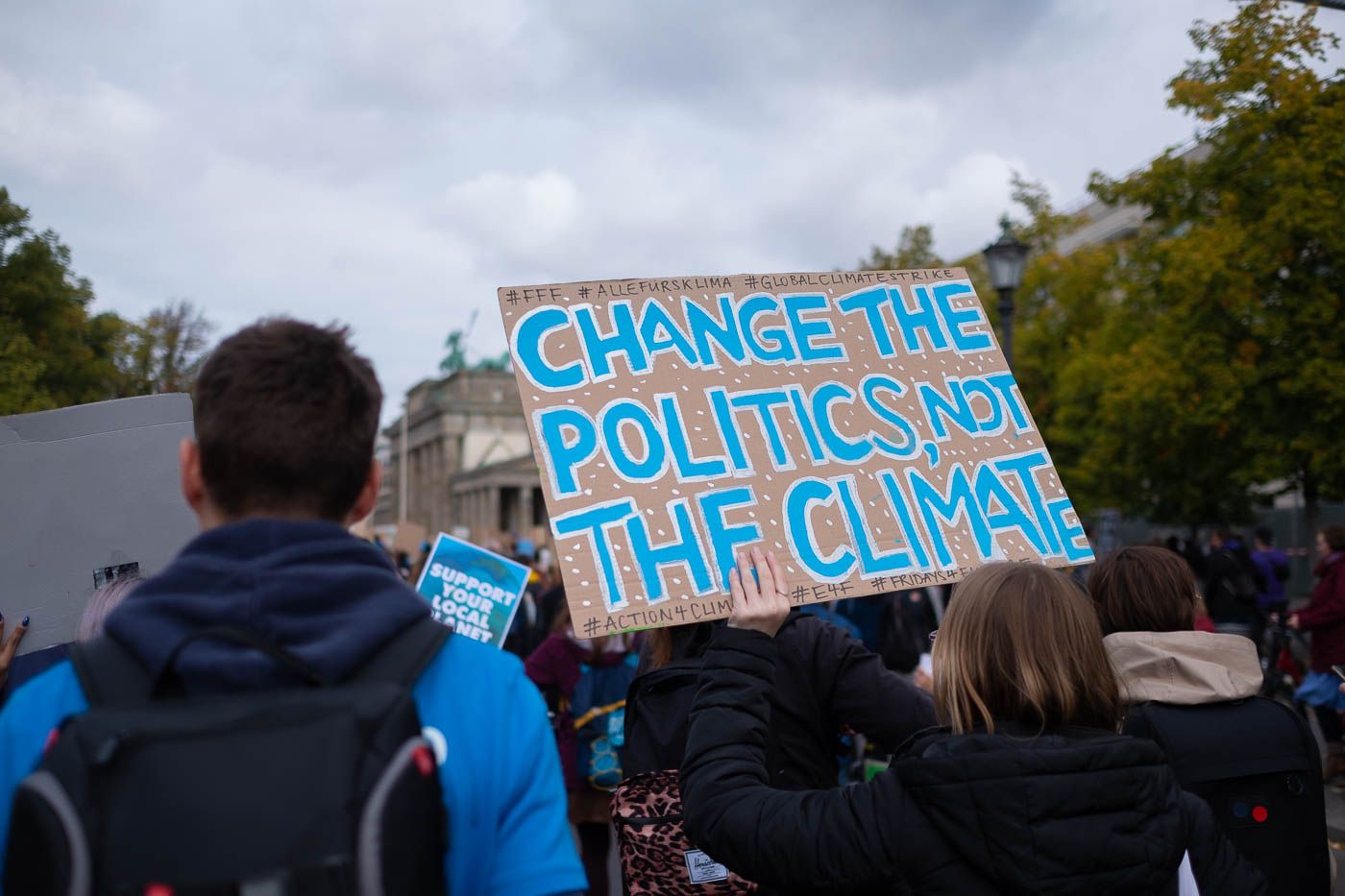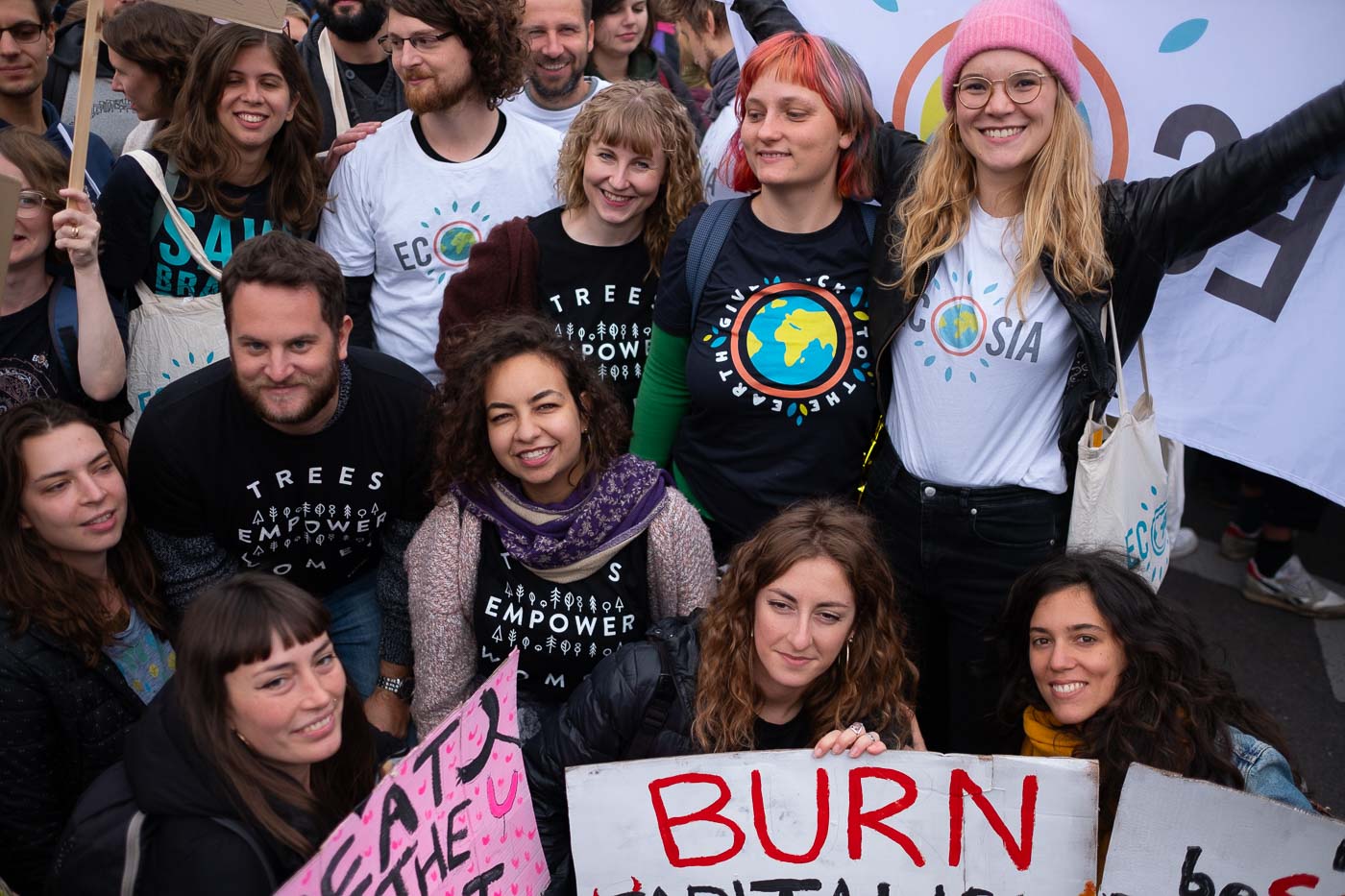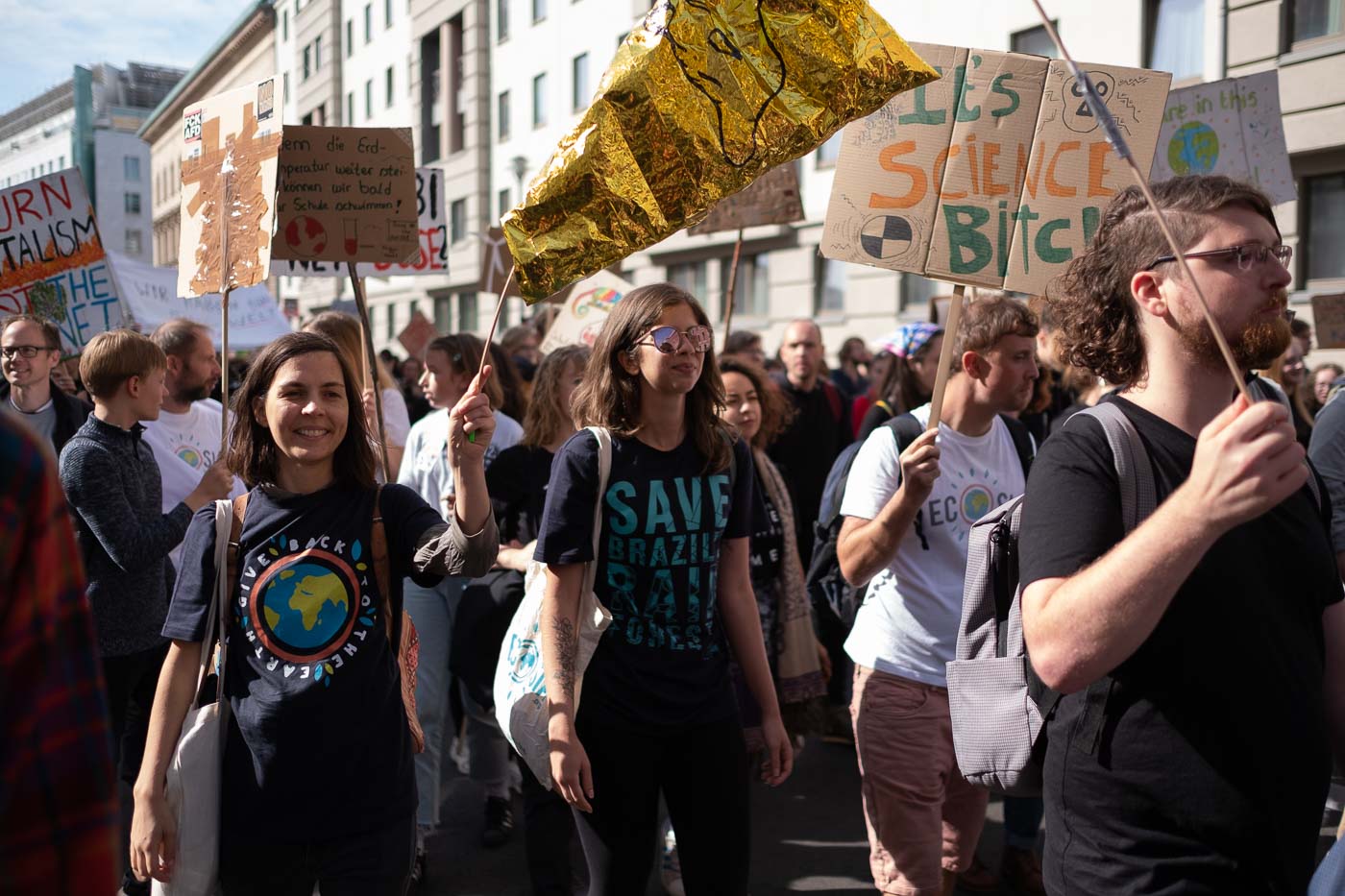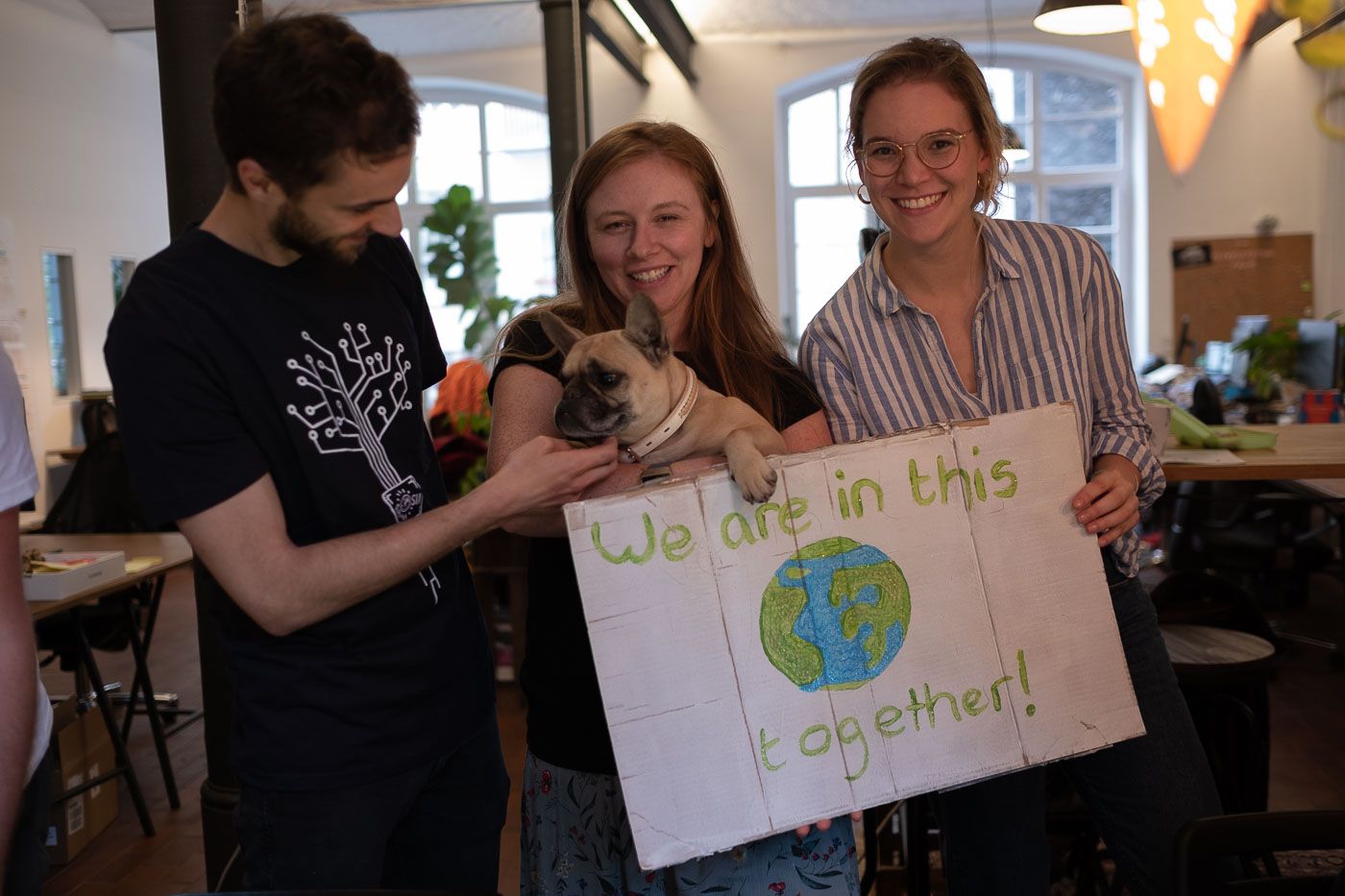On November 29th, Fridays for Future is calling on everyone to join the next global climate strike.
A climate strike, again?
I’m afraid so: if we want to pressure governments to bring about the systemic changes needed to avoid an environmental collapse, we need to make ourselves heard.
Here are just three of the most pressing climate issues affecting the entire world right now:
1. The US has withdrawn from the Paris Climate Agreement
2. Australia is burning, yet the government won’t act
3. The world’s largest multilateral bank would still be financing fossil fuels if it weren’t for public pressure

The US has withdrawn from the Paris Climate Agreement
At the beginning of November, President Trump made it official: the United States of America has withdrawn from the international Paris Climate Agreement, which aims to reduce greenhouse gas emissions in an effort to keep temperatures from rising to dangerous levels.
By withdrawing, Trump has made life more difficult for all of us.
The US is the world’s second-biggest emitter of greenhouse gases, behind only China, and is by far the largest emitter in history. Without the US, the pact now only covers 80% of global greenhouse gas emissions, down from 97% previously.
But not all is lost.
The withdrawal from the Paris Agreement won’t become official until the end of 2020, after the US presidential election. Even then, the agreement stipulates that any nation can get back into it within 30 days after its official withdrawal.
This means that if American citizens vote for a president who doesn't deny climate science, the US could still cancel its withdrawal from the agreement.
But if you won’t yet be of age by then, or if you’re not an American citizen, you can still take to the streets to build pressure. Ask fellow US citizens to take responsibility when their president won’t.
Australia is burning and its government won’t act on the climate crisis
Earlier last week, the worst bushfires in decades sparked across Australia. Despite their clear link to rising temperatures as a result of climate change, the Australian government still denies the need to review climate policies.
When economic powers like Australia or the US abdicate any responsibility for curbing emissions, it is much more difficult to convince countries like India or China - other giant sources of greenhouse gases - to do more on their side.
Let’s demand that Australia and the US set an example.

The European Investment Bank would still be financing fossil fuels if it weren’t for public pressure
The European Investment Bank (EIB) is the house bank of the European Union (EU) and is therefore owned by all members of the EU. Because of their combined economic power, the EIB is the world’s largest international public lending institution.
In the past 6 years alone, the EIB awarded the fossil fuels industry a staggering 13.5 billion Euros. Last week, the EIB made a long-due announcement that from now on it will no longer lend money to fossil fuel companies.
By changing its so-called Energy Lending Criteria to exclude fossil fuel projects, the EIB is finally aligning with other legal commitments made by the EU, such as the compliance with the Paris Climate Agreement.
Wait, isn’t that good news?
Definitely. But what is remarkable about this decision is how it came about.

The EIB is not completely independent. Like every other EU institution, any policy or proposal by the EIB needs to be approved by every single member country.
In other words, the EIB is powerless unless its members decide to vote, sign or implement its proposals.
Behind the scenes, Germany’s Minister of Economy and Energy, as well as its Minister of Finance were both blocking the EIB’s proposal to no longer invest in fossil fuels.
Public pressure by environmental organizations, including Fridays for Future, drew so much attention to this, that even The New York Times called the German government out on its blockage, finally forcing them to give in.
Nevertheless, as groups like BankWatch and Fossil Banks show, there are still dozens of other banks lending much larger amounts to the fossil fuel industry, making the EIB seem like a small player in comparison.

These are just a few, pressing reasons why it’s important that we all support the upcoming global climate march.
History shows that peaceful, massive protests have the power to bring about systemic change. The more people join, the more effective these are.
What is your motivation to join the global climate strikes on November 29th? Let us know in the comments.
